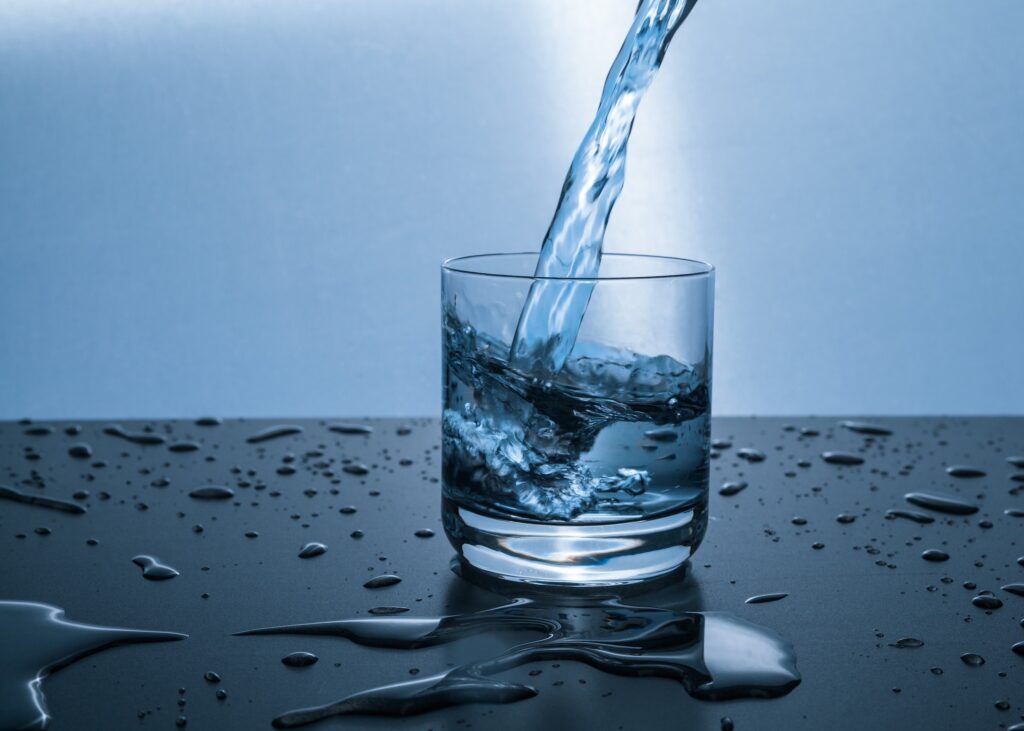Residents of the Southwest are used to seeing their showerheads crusty with white mineral deposits over time. If left untreated, this crust can clog those showerheads and faucets. In industrial settings, hard water can be the archnemesis of functional equipment like boilers. So what’s the deal with that annoying white layer around your appliances? That’s hard water at work.
So what does it mean when your home and community use and consume hard water? Here’s what you should know.
Characteristics of Hard Water and How It Affects Pipes and Infrastructure
Hard water is high in calcium and magnesium. And while— interestingly enough— that might provide hard water drinkers a percentage of their needed magnesium intake, it can wreak havoc on pipes, equipment, and other essential infrastructure.
These minerals contained in the water can form a hard scale inside pipes. This residue is a type of thick scum that builds up over time and will reduce water flow. When it comes to plumbing systems, hard water creates a buildup that eventually leads to clogging. In many residential settings, it causes water heaters to corrode. In industrial settings, boilers can also be victims of the hardening effects of the water and cost production efficiency or operation.
Hard Water and Soaps
Hard water and cleaning products don’t get along. In fact, they have a bit of a rivalry going on. This can make cleaning up much more difficult. The minerals in the water have a reaction with the soap. People may notice that washing their hands with hard water and soap doesn’t produce as many suds as with soft water.
Why is that?
Soap works—in some sense—by repelling water through a hydrophobic hydrocarbon end, which attracts oil. Soaps contain two molecule ends, one end repels water, and the other attracts water. So one end of the molecule is what sticks to the grease or oil and removes it and sends it off to the water. These soap molecules break down the oil, which allows the water to then ‘wash’ it away.
So hard water decreases the ability of soap to do its job. So if you are washing your clothes or your body with hard water and soap, you usually require more soap in order to get the ideal result or a nice ‘lather.’ The soap scum produced by hard water is caused by another chemical reaction, the sodium binds to the minerals and produces insoluble calcium or magnesium stearate. That’s the white stuff that sticks to your faucet. The soap scum can damage fabrics or make them feel itchy, damage plumbing fixtures, produce build-up in your hair, and get stuck to your faucet and showerhead.
Other effects include:
- Less clean clothes
- Spotted glassware after dishwashing
- Buildup on tiles and fixtures
- Clogged pipes
The Science Behind Hard Water — What a Difference an Ion Makes!
Rainwater is pure everywhere. When it hits the ground, that’s a different story. In desert landscapes such as those in West Texas and Eastern New Mexico, when rain falls onto the ground it picks up and absorbs minerals like calcium and magnesium. Similarly, well water that percolates down the water table also picks up minerals and becomes hard. Water softeners are known as ion exchange units because they are using the chemical reactions between molecules to remove the unwanted mineral deposits. Water softener systems will be placed where water enters the home and affect the water coming in for drinking and washing. It does not affect water used for irrigation.
Inside the unit, there is a porous material (resin) that attracts the ions dissolved in the water. Think of it as a magnet for these minerals. Because calcium and magnesium are positively charged molecules, when they pass through a negatively charged resin, snap— they attract each other. So as water passes through the unit, the ions stick to the resin. Units must also clean themselves in order to remove the solidified calcium and magnesium deposits that get stuck there. This is done via salt water (which is positively charged) and flushed through the resin. This means the deposited sodium and magnesium attract to it and wash out with the rest of the saltwater.
So what happens is a process of ion exchange. As Scientific American reports, a cubic foot of resin can remove calcium and magnesium deposits from about 3,200 gallons of hard water.
Why a Quality Water Softener Matters
Water softeners must work properly and efficiently in order to achieve the intended result. This means ensuring the system is built with quality materials. The unit also needs to be set to the hardness of your water, so that it works efficiently and doesn’t waste water and cause your bills to go up.
A Water Softener Will Improve the Taste and Quality of Your Water!
If you want to avoid the drawbacks of hard water, one small water softening system is what you need. Whether you are in a residential home or an industrial setting, Sun Tech Services can provide state-of-the-art systems with top engineering that use various forms of water softening.
Want to learn more about how a water softener system might be right for you? Call Sun Tech Services today.

